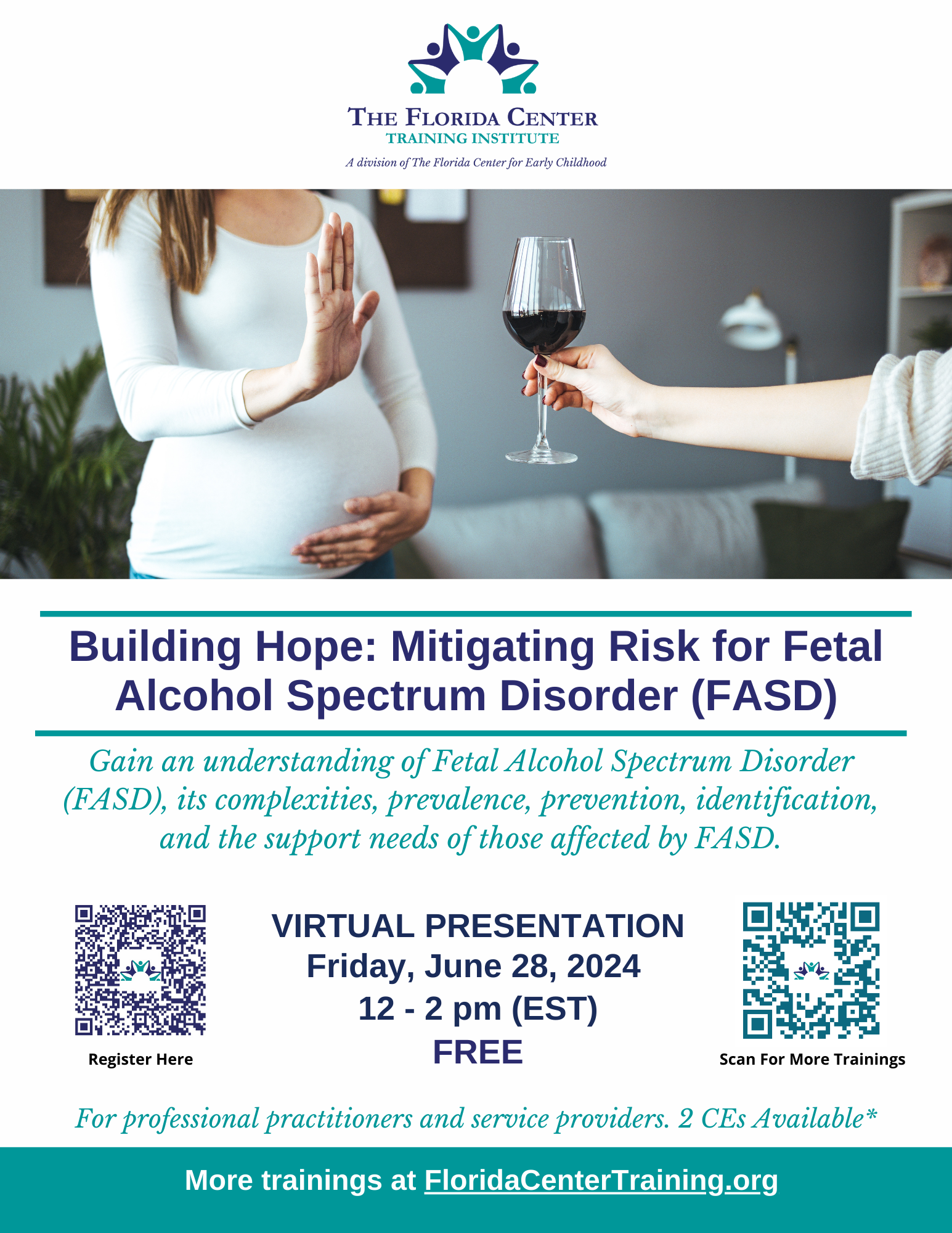Your cart is currently empty!

- This event has passed.
Building Hope: Mitigating Risk for FASD
June 28, 2024 @ 12:00 pm – 2:00 pm EDT

In this presentation, participants will learn from Dr. Roxanne Change and Shannon Iacobacci, MS about Fetal Alcohol Spectrum Disorder (FASD), gaining a deep understanding of its complexities, prevalence, and lifelong impact. Attendees will explore crucial topics such as prevention strategies, stigma reduction, identification of prenatal alcohol exposure, and holistic support for individuals and families affected by FASD.
Learning Objectives include 1. Identify two reasons why FASD is a global health problem, 2. Name at least one validated tool for identifying substance use in pregnant individuals, 3. Implement best language practices to reduce stigma and shame within the FASD population.
Presenters:
Roxanne Chang, MD, FAAP, is a dedicated pediatrician with expertise in service children and families facing complex medical needs, developmental disabilities, and various challenges including homelessness and substance use. She teaches at UCLA’s David Geffen School of Medicine and practices at Harbor-UCLA Medical Center, focusing on inpatient care, newborn health, and child development. With over a decade of experience, Dr. Chang is a Subject Matter Expert for the AAP FASD Program and leads interprofessional learning collaboratives on tough cases involving FASD. She also directs a pediatric prenatal program, supports families affected by substance use disorder, and volunteers with local non-profits. Dr. Chang is a sought-after speaker on early relational health, childhood trauma, substance exposure, and health equity. She finds fulfillment in empowering parents to nurture thriving relationships with their children.
Shannon Iacobacci, MS specializes in Fetal Alcohol Spectrum Disorder (FASD), providing training and support to parents and professionals in home, classroom, and community settings. With personal experience raising children with developmental disabilities, she is passionate about bridging the gap between brain differences and daily living, behavior, and interventions. Shannon offers expertise in neurodevelopmental disabilities, prenatal alcohol and substance exposure, childhood trauma, and attachment, advocating for families through the IEP process and offering a strength-based approach to parenting and teaching.
This presentation is for medical professionals working with women, infants, and young children nationwide.


